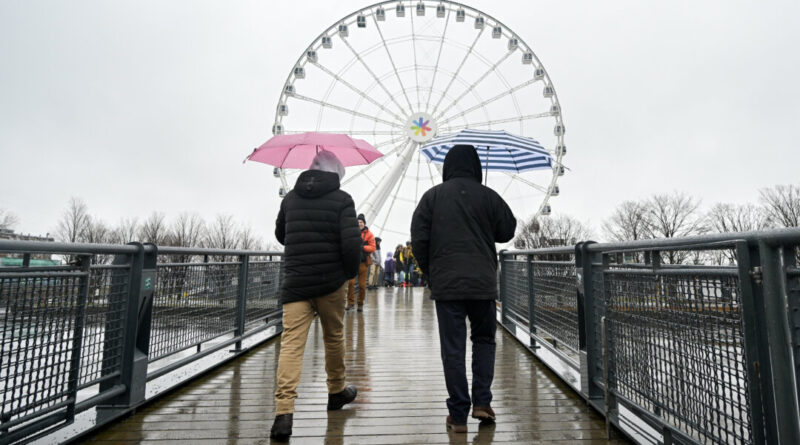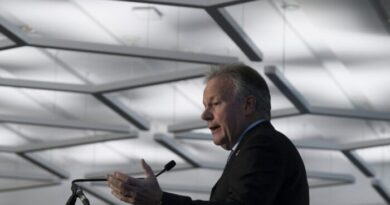Commentary
Canadian national identity and culture are facing a significant decline. Nonetheless, history has shown that nations can revitalize themselves through determination, sparking eras of exceptional cultural advancement.
The challenges to Canada’s culture include a growing sense of indifference among the population. Recent surveys indicate that an
increasing number of Canadians only feel emotionally connected to the country “as long as it ensures a good standard of living.”
The emergence of transactional patriotism poses a threat to the unity that binds us as fellow citizens. If we see ourselves solely as individuals without a shared identity, why would we contribute to charity, serve in the military, assist in emergencies, or unite for significant national events like
Expo 67 or the Terry Fox Marathon of Hope?
The extremist fringe of activists with disproportionate influence over academic and cultural institutions may exploit Canada’s apathy to further shape the country according to their desires. Recent actions provide a glimpse of what this future might hold.
Between 2020–2022, 13 statues of historical figures—including Sir John A. Macdonald, Captain James Cook, and Egerton Ryerson—were dismantled by city governments or toppled by unruly crowds. The frenzy of renaming streets and schools has prompted discussions that would have been unthinkable in the past, like the pressure from activists on the B.C. community of Powell River to
change its name due to controversies surrounding the 19th-century B.C. political figure Israel Wood Powell.
Hostile ideological forces are poised to fill the void left by a vanishing national identity with their own agenda. This presents a precarious situation for a country. However, history offers examples of nations that have revived their identity and promoted cultural rejuvenation.
Today, we may take for granted the esteemed status of Russian novels in the Western literary canon, but their prominence stems from a specific historical context—Russia’s cultural flourishing in the 19th century. Once lagging behind culturally, Russia experienced a sudden burst of brilliance in the 1800s, becoming a literary and artistic powerhouse in a relatively short span of time.
During the
Golden Age of Russian Literature, luminaries like Pushkin, Tolstoy, and Dostoevsky emerged to create masterpieces still studied in universities worldwide. Most of the Russian literary works enjoyed today were penned during Leo Tolstoy’s lifespan: 1828–1910.
This era witnessed Russian excellence across various disciplines. Tchaikovsky composed globally acclaimed classical music pieces that are integral to the Western repertoire, such as “Swan Lake” and “The Nutcracker.” Playwright Chekhov, a pioneer of psychological realism and early modernism in theater, produced enduring plays like “The Seagull” and “Uncle Vanya.”
This transformative period resulted from a deliberate endeavor to cultivate a national cultural identity through the promotion of high culture. Education played a crucial role, with affluent households leveraging their resources, acquired freedoms under Catherine the Great in the late 18th century, to engage French tutors for their children. Consequently, young Russians gained access to the best of Western civilization.
After World War II, Japan lay in ruins. Despite the devastation, the post-war Japanese government embarked on a mission to
rebuild Japan as a cultural nation. Photographers documented daily life across the country to capture the essence of national identity—from cherry blossoms in rural villages to trendy urban fashion. Today, Tokyo stands as a global hub for classical music, and Yamaha is the world’s
largest manufacturer of musical instruments.
These examples highlight that cultural revitalization is achievable even in challenging circumstances, but it requires dedication. The investments made by Russian aristocratic families in hiring French tutors or Japan’s emphasis on
music education in schools showcase the significance of such efforts.
A similar cultural renewal could take place in Canada, and there are positive indications.
The declining popularity of woke ideology is a promising trend. A survey indicates that 78 percent of Canadians believe “political correctness has gone too far,” and 70 percent reject the notion of Canada being a racist country. This suggests that many Canadians may be open to revitalizing our national identity.
Another encouraging development is the push for a return to traditional education. Initiatives like restoring “back to basics” schooling in Ontario or the growth of traditional charter schools in Alberta, such as the
Calgary Classical Academy, signal a shift towards equipping students with knowledge and virtues aligned with free citizenship.
By nurturing this trajectory, Canada could replicate the surge of classical education in the United States, where
264 new classical schools emerged between 2019 and 2023.
Historical evidence attests that national renewal is attainable. With active involvement from citizens, we can initiate a necessary course correction, rediscover our identity as part of Western civilization in North America, and catalyze a period of cultural achievement that instills pride in being Canadian.
Views expressed in this article are opinions of the author and do not necessarily reflect the views of The Epoch Times.



